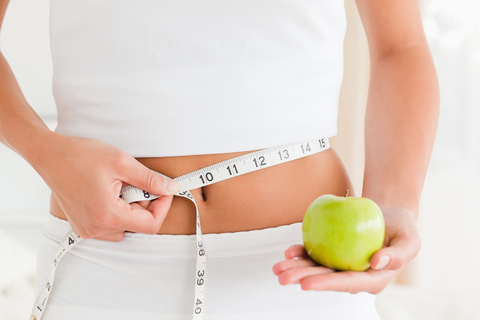
If you’re reading this, you or someone you know has battled with weight gain/loss. There are some simple things you have to know first (some of you may already do), and some more complicated ones that are more individualized and may require some serious introspection.
FUNDAMENTAL NUMBERS:
A pound of fat = 3500 kcal (approx.).
Therefore, to lose 1 pound, you must either expend 3500 kcal more, or eat 3500 kcal less than your needed intake (over a period of time).
30 minutes of exercise can range from a loss of 100 to over 500 kcal depending on the activity. Here is an extensive list: http://www.health.harvard.edu/newsweek/Calories-burned-in-30-minutes-of-leisure-and-routine-activities.htm
The average man should consume around 3000 kcal/d
The average woman should consume around 2500 kcal/d (unless pregnant or breastfeeding)
TIPS:
Exercise: not only does it help to burn calories, but it also elevates your mood and increases your metabolism – both of which make it easier to continue losing weight. Varying levels of intensity should be done 5-6 days per week. It is important to try several different avenues of exercise until you find one that you enjoy.
Diet: by consuming 8-10 servings of fruits and veggies per day, you’re giving your body all the vitamins and minerals it needs to function at its optimal level – and they’ll make you feel full with less calories while limiting higher calorie foods. It can be tough to prepare all of your meals, but making them in advance and freezing them is a good way to ensure optimal eating and not resorting to fast foods.
Mealtimes: by eating well in the morning, we’re giving our bodies the calories they need to get going, and we have all day to burn them off – this will also help reduce the size of lunch and dinner.
Grazing: by eating several small meals as opposed to 1 or 2 big ones, the food is easier to digest and we maintain a steady blood-glucose level which reduces the desire to eat large amounts.
Mindful eating: by being “present” with your food, as opposed to mindlessly grabbing at it or eating in front of the TV, you will eat more slowly and become aware of fullness sooner. This also shifts your body into a parasympathetic state, which increases digestion.
Water: not only does it help to flush out toxins, but it also aids in the feeling of fullness. You should be aiming for 1oz of water per kg of body weight (if you’re 150lbs, that’s about 1.9L, or more than 8 cups of water at 8oz each)
Food labels: if you’re buying packaged food, they all are mandated to have the labels listing the caloric content (as well as protein, carbohydrates, fat, etc.). It shouldn’t be hard to approximate what you’re consuming in a day.
Tracking Calories: there are several websites/apps that can do this for you – just type in “calorie counter” in a search engine and try one that works for you. Most of these sites have databases of food, so it makes it easier to keep track once you’ve set up your usual diet.
Alcohol: behind fat, 1g of alcohol has the highest caloric content – so stop drinking alcohol during your diet phase, and consider moderately adding it back in once you’ve reached your desired weight.
OTHER FACTORS:
Hormones: stress can lead to an overabundance of Cortisol, the hormone that deposits fat around our midsections. Your thyroid produces hormones that regulate your metabolism; if they’re low, you could struggle with your weight.
Motivation: everyone has an association with food; whether it’s good or bad, from their childhood or recently. Adjusting our learned beliefs about food and mealtimes may be a necessary step to lose your weight and keep it off.
Environment: the people you surround yourself with can either be a great support, or a great detriment. Encourage those around you to make similar changes for their own health and it will make it easier for you to continue down your own path.
If you have any questions about the above therapies, or want to learn more about other therapies, please contact Doctor Tim directly at DrTimSearleND@gmail.com




1 Comment